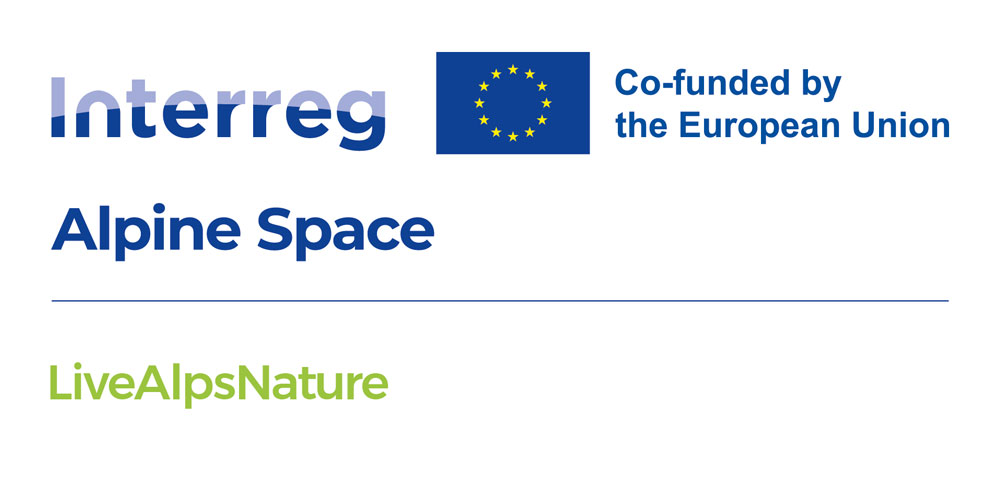Live Alps Nature

The LiveAlpsNature project contributes to the preservation of biodiversity in alpine protected areas, which are increasingly being used for nature and health tourism. The project team is developing new visitor management concepts and recreational offerings, integrating them into digital platforms.
Budget: 1.880.177 EUR
Project Duration: 09/2024 – 08/2027
Hotspots for biodiversity, tourism & outdoor activities - how do they go together? A challenge for the Alpine Protected Areas (APA) covering 30 % of the Alpine territory.
Biodiversity in protected areas is increasingly suffering from the growing pressure of tourism. Effective visitor management can help alleviate this strain. In response, the LiveAlpsNature project brings together experts from a wide range of fields: the Alpine Network of Protected Areas (ALPARC), CIPRA Lab, Paracelsus Medical Private University, Bohinj Tourism, four national parks from various Alpine countries, two Italian nature parks, a French conservation association, and the digital platform OutdoorActive.
Initially, the project team analyses emerging trends in nature tourism and their impact on biodiversity. This analysis forms the basis for the development of innovative recreational activities and visitor management measures, based on the One Health approach. These measures aim to promote both biodiversity conservation and human health. The effectiveness of these strategies is being tested in selected pilot regions within alpine protected areas. Workshops and training sessions will share proven measures with key stakeholders. The project team will make the collected data and visitor management standards available as open-source resources, enabling their dissemination across various digital platforms. Through this approach, the project aims to relieve pressure on alpine protected areas, develop sustainable tourism solutions, and enhance the health and resilience of both nature and people in the Alpine region.
Project Partners:
- ALPARC – the Network of Alpine Protected Areas (FR, Lead Partner)
- Paracelsus Medical University Salzburg (AT°)
- Aree Protette dell’Ossola (IT)
- Triglav National Park (SI)
- Swiss National Park (CH)
- Berchtesgaden National Park (DE)
- Ecrins National Park (FR)
- Asters - Conservatoire d’Espaces Naturels de Haute-Savoie (FR)
- CIPRA Lab GmbH (AT)
- Parco Natural Mont Avic (IT)
- Tourism Bohinj (SI)
- OutdoorActive (DE)
Countries: France, Switzerland, Italy, Austria, Germany, Slovenia
Goals:
- Mitigate the negative impacts of nature-based recreational activities on biodiversity in protected areas and beyond.
- Increase the visibility of data on sensitive natural areas through digital platforms.
- Raise public awareness of the connection between biodiversity and personal health.
Activities:
- Analysing the effects of nature-based recreational activities (NBA) on biodiversity and tracking NBA developments in the Alpine region.
- Developing a catalogue of new activities based on the One Health approach.
- Creating a list of measures to minimize harmful activities.
- Providing a toolbox with standardized open-source data sets and new offerings for online platforms.
- Developing a training kit with new NBA offerings and visitor management strategies for protected area managers and other stakeholders.
Target Groups:
- National Park administrations and rangers.
- Online platforms and their users.
- Visitors to protected and alpine natural areas.
- The tourism sector: e.g., mountain guides, alpine clubs, tourism associations.
Project Duration: September 2024 – August 2027
Funding Amount: € 2 729 503,30
Funding: This project is part of the Interreg Alpine Space Program, which co-finances and supports cross-border cooperation projects between seven Alpine countries.
Ansprechpartner:
Ulf Dworschak
Head of SG 1 - Nature Conservation and Planning